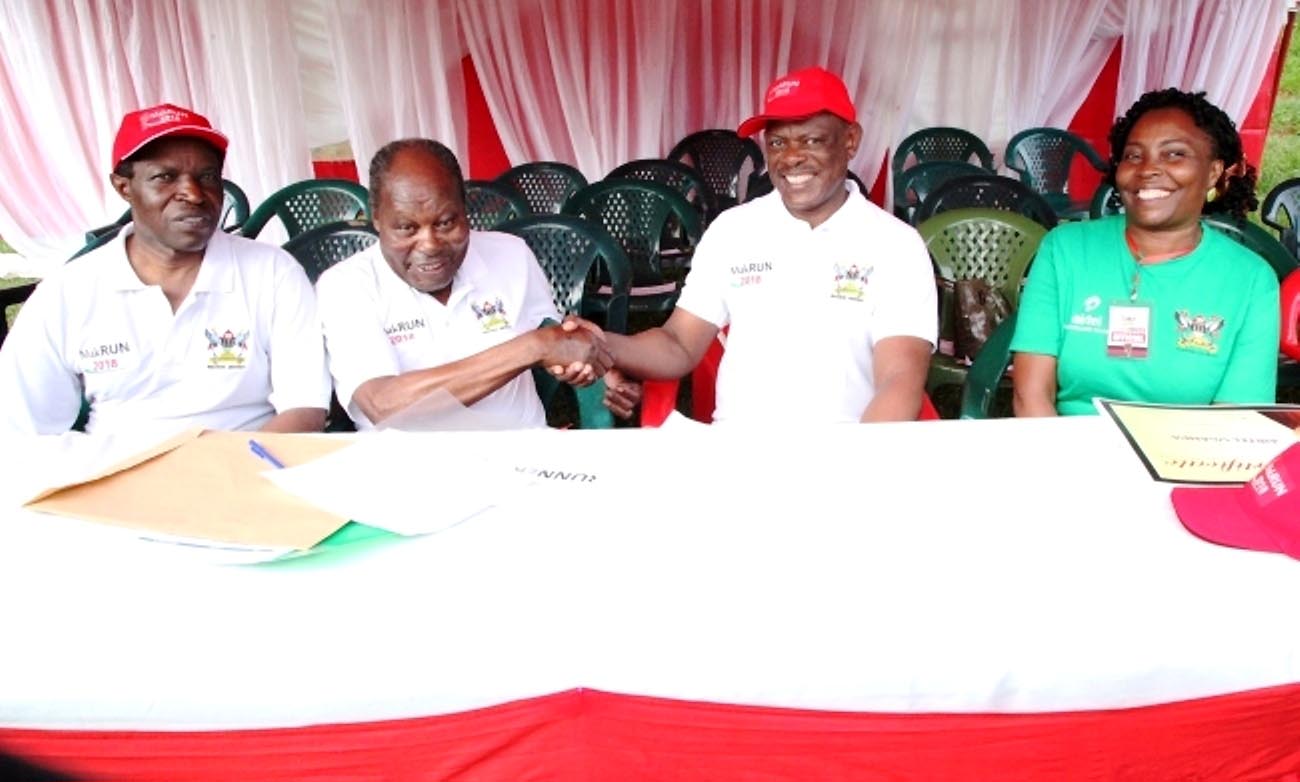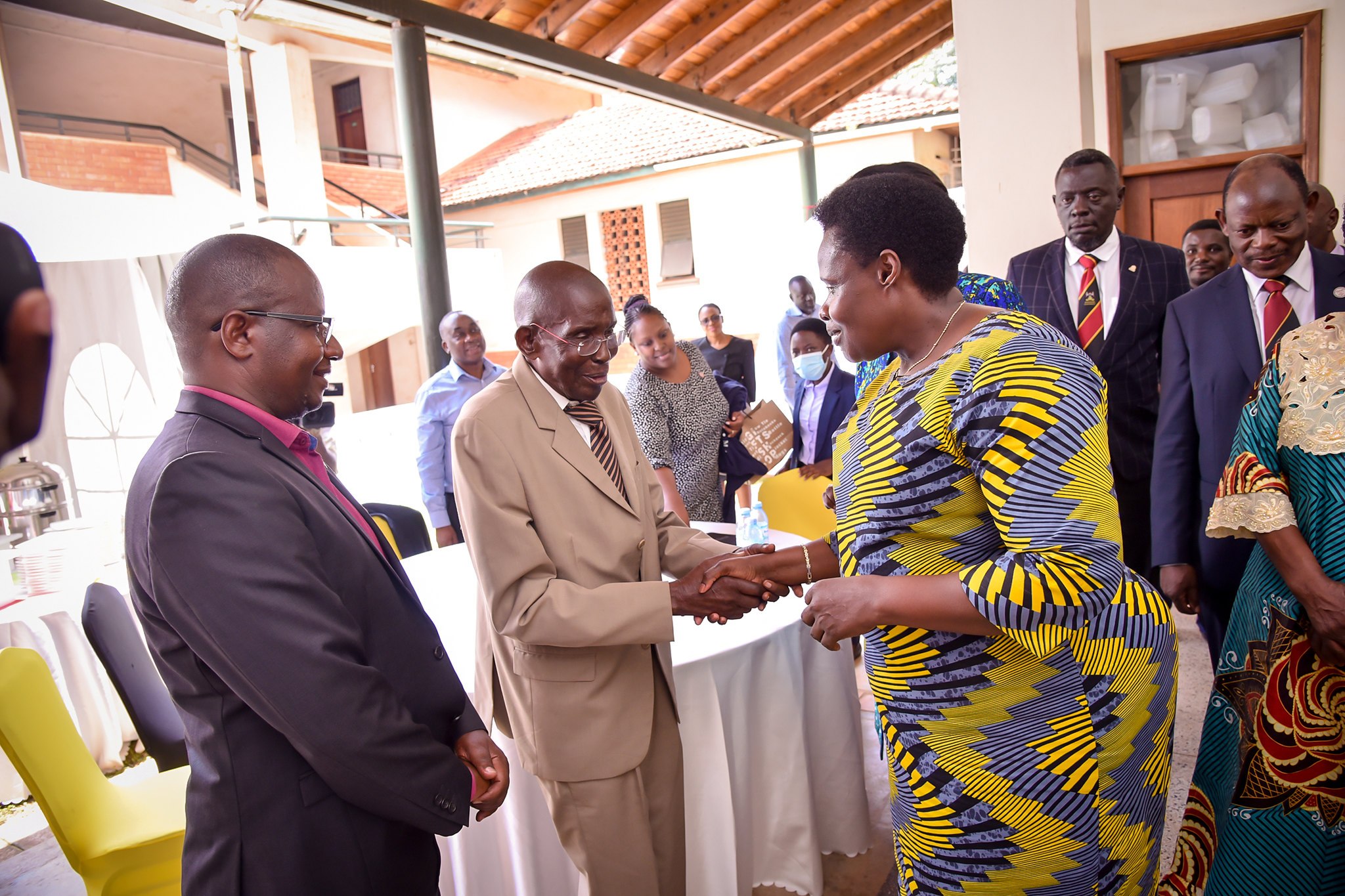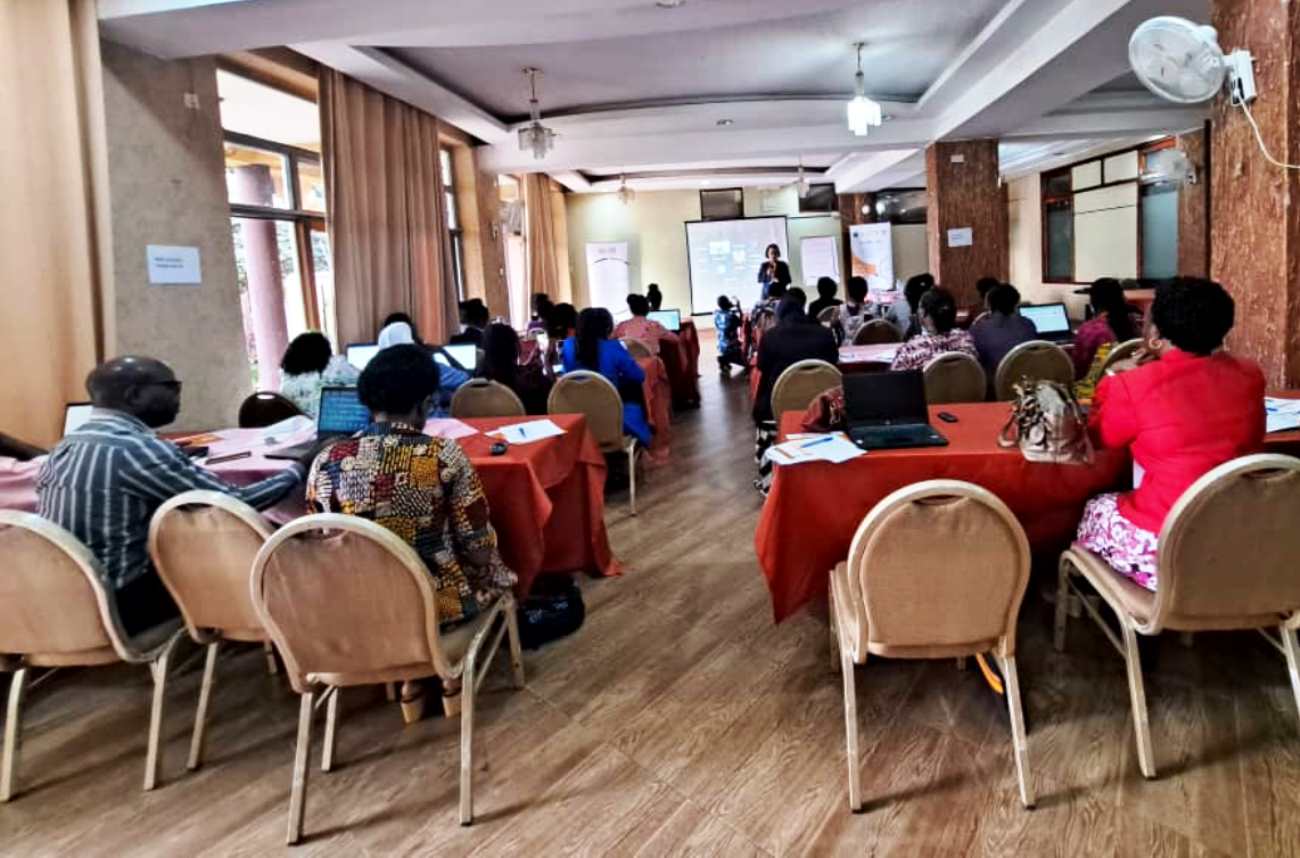After a year of intensive research and studies, Climate and Development Knowledge Network (CDKN) in conjunction with Climate Change Department (CCD), Ministry of Water and Environment has produced a fully fledged report on the Economic assessment of the impacts of climate change in Uganda.
Presenting the Report during the Economic Assessment Study-National Outreach Event organized by CDKN, Ministry of Water and Environment and Makerere University on 24th November 2015 at Protea Hotel-Kampala, Dr. Olivier Beucher from Le Groupe-conseil Baastel Sprl (Baastel) highlighted that although the cost of adapting to climate change is high, the cost of inaction is twenty times higher.
According to the report (Economic assessment of the impacts of climate change in Uganda), climate change is likely to cause an increase in extreme weather events such as floods, heat and droughts. Highlands are likely to become wetter and rainfall is expected to be more erratic, unpredictable and intense, with shorter rain seasons.
In addition, the report also points out that;
- Development prospects will only be reached if the impacts of climate change in Uganda are mitigated.
- The impacts of climate change in Uganda are expected to be felt across the sectors of agriculture, energy, infrastructure and water, as well as the local areas of Mpanga River Basin, Mt. Elgon, Karamoja and Kampala City, as studied to varying degrees
- The cost of adaptation will be so high estimated at around US$406m over the next five years (2015-2020). On an annual basis, this amounts to about 5% of the net official development assistance received and 3.2% of the total government revenues (excluding grants).
- The cost of inaction is 20 times greater than the cost of adaptation: inaction is estimated at between US$3.1b and 5.9b per year by 2025, which is more than 20 times of the proposed adaptation budget.
Further examining the economic impact in Uganda, Dr. Beucher said that Climate Change is more likely to affect the four sectors of Agriculture, Water, Infrastructure, and Energy. He highlighted that the damages to be reached in these sectors are estimated to collectively amount to 2-4% of Gross Domestic Product (GDP) between 2010 and 2050.
“The higher the growth in GDP the lower is the percentage. The estimates include the costs of current variability as well as future change. In fact a major part of the problem comes from the current variability and a lack of infrastructure to deal with it. This gives urgency to the problem and to the need to act now to reduce impacts climate change,” he said.
 He explained to the participants that, the development prospects for Uganda foresee an average annual growth rate of 7-8% over the next 25 years and a drop in poverty levels. However, Beucher said that these prospects depend on a lot of factors working in favour of implementation of sustainable development policies.
He explained to the participants that, the development prospects for Uganda foresee an average annual growth rate of 7-8% over the next 25 years and a drop in poverty levels. However, Beucher said that these prospects depend on a lot of factors working in favour of implementation of sustainable development policies.
“Uganda is ready to take immediate actions, and must do so. Many of the recommended actions are likely to be ‘no regrets’. They will bring about gains regardless of whether climate change happens or not. Many of the actions also have potential co-benefits, for example reducing use of biomass for energy has carbon benefits and also potential biodiversity, health, and water management benefits,” he said.
In January 2014, the Government of Uganda commissioned the Economic Assessment of the Impact of Climate Change study. Its purpose was to provide the Government with economic evidence of the current and future costs associated with climate variability and predicted climate change, and the necessary adaptation measures for different sectors on both national and local scales. This evidence was intended to help policy makers mainstream climate change and resilience into national and sectoral policies and develop the case for investing in adaptation.
The study was carried out by climate change scientists from Makerere University, Metroeconomica (UK) and the University of Wolverhampton Centre for International Development and Training (CIDT) led by the Le Groupe- conseil Baastel Sprl (Baastel. It was jointly funded by the Climate and Development Knowledge Network (CDKN) and the Department for International Development (DFID).
According to the report, the evidence from the study has already informed Uganda’s Intended National Determined Contribution (INDC) to the 21st Conference of Parties (COP21), and to the United Nations Framework Convention on Climate Change (UNFCCC) both in Paris France. The INDC outlines Uganda’s commitment to climate adaptation and mitigation of greenhouse gases as part of a new, universal global climate agreement that will be decided at the summit.
During the National Outreach Event organised under the theme: Economic Impact of Climate Change: what does it mean for Uganda’s development?, the Minister of Water and Environment Hon. Ephraim Kamuntu, acknowledged the great work carried out by CDKN, in sponsoring and developing the process of generating hard and empirical evidence on effects of Climate Change in Uganda. The Minister said that the figures generated will help to create awareness to the community.

He also explained that there is a need of the Ministry of Water and Environment to engage the community in influencing the impact of climate change as well as changing people’s mindsets towards a common goal of investing in Climate Change adaptation measures.
“There is a need to change peoples’ mindset and make them understand that climate change is real. Many Ugandans think that climate change is a myth. Therefore we need to prove to them that we are already experiencing it. It is very clear that in Buduuda almost 300 people were buried alive, glaciers on mountain Rwenzori melted and the recent floods in the western region clearly indicate that we are experiencing the impacts of Climate Change,” he said.
“We must also agree on means of implementation on Financing Climate Change. Money should be earmarked and not confused with funding for other programs. Secondly, Uganda National Meteorological Authority should be well equipped with modern technology to predict climate change accurately and raise awareness on it. At National Level, we need to engage Ministry of Finance, Planning and Economic Development to understand the economic threats of climate change,” he added.
In her speech, Ms. Claire Monkhouse from Climate and Development Knowledge Network (CDKN) said that Uganda contributes very little to this climate problem with less than 1% of the greenhouse gas emission. She said that Uganda is one of the 13 countries CDKN supports across Africa, Asia and Latin America to investigate climate adaptations and mitigation.
“I would like to emphasize that the study has highlighted that Uganda’s economy has already been impacted by climate variability and I am sure that these effects will rise with climate change. I thank the people who have been involved in the study and developing the findings that have been partly illustrated in the film. We are going to show this film to the climate experts in the coming Paris conference and I believe that it will greatly influence the binding agreement, we are going to draft during the conference,” she noted.
 The Head, Department for International Development (DFID) Uganda Mr. Howard Standen noted that the Paris agreement should give a framework for accelerating a global transition of climate resilient economy. To him this can only be achieved by collective measures and true determination of countries.
The Head, Department for International Development (DFID) Uganda Mr. Howard Standen noted that the Paris agreement should give a framework for accelerating a global transition of climate resilient economy. To him this can only be achieved by collective measures and true determination of countries.
“It is my pleasure to participate in such an important discussion which will positively impact on the national vision of this country. The national vision of Uganda is to transform the country into a competitive middle income country by 2040. I therefore congratulate the Minister of Water and Environment together with the Government of Uganda for the strong efforts they invested in the study and commitment to strongly reduce greenhouse gas emissions by 22% by 2030,” said Mr. Standen.
In a speech read by the Principal, College Agricultural and Environmental Sciences (CAES) Prof. Bernard Bashaasha, the Vice Chancellor, Prof. John Ddumba-Ssentamu said Makerere University has engaged in building capacity for climate change mitigation and adaptation.
“The Makerere University College of Agricultural and Environmental Sciences, has integrated aspects of climate change at undergraduate level and introduced new regional Masters Programmes on the same. The College also developed seeds for rangeland forages, drought and diseases resistant varieties of crops as well as carried out extensive research on indigenous multipurpose tree species that can absorb carbon dioxide from the environment,” explained Prof. Ddumba-Ssentamu.
What do the study findings mean to Uganda?
According to Mr. David O.O. Obong, Permanent Secretary- Ministry of Water and Environment the study findings have increased awareness to guide the government and community on how to act on climate change. Mr. Obong said that Ministry of Water and Environment is currently engaging all stakeholders to come up with the legal framework for implementing climate change adaptation across all sectors.
“For coordination, Ministry of Water and Environment has asked agencies to have a focal person for Climate Change. All sectors that is to say; the infrastructure, water, energy and agricultural sectors were asked by the Ministry of Finance, Planning and Economic Development to integrate climate change in their activities,” he mentioned.
Dr. Wilberforce Kisamba Mugerwa, Chairperson of National Planning Authority (NPA) highlighted that NPA in collaboration with Ministry of Water and Environment has developed guidelines for sectors and local authorities to prioritize certain activities during budgeting.
“Guidelines for local authorities exist. We have limitation of capacity at both sector and local government levels. Climate Change is a crosscutting issue just like HIV and Gender, so capacity has to be built if we are to mainstream and stipulate roles for each agency. There is also a need to identify who is responsible for what activity,” he said.
On behalf of Kampala Capital City Authority, Dr. Najib Lukooya Bateganya mentioned that most of the issues raised in the study i.e. water, infrastructure and energy relate to Kampala except agriculture. Dr. Bateganya said that engaging in the study helped KCCA to better understand the impact of climate change on its development activities. He  further noted that with the help of the French Development Agency, KCCA was able to develop a Kampala Capital City Action Plan in which infrastructure is key.
further noted that with the help of the French Development Agency, KCCA was able to develop a Kampala Capital City Action Plan in which infrastructure is key.
“KCCA is also prioritizing drainage in which the Authority has developed projects planned up to US$500m to handle the drainage situation. On Renewable Energy, we are switching streetlights to solar and our target is to convert to 100% solar street lighting. We also need to decommission and start on new project to help recover recyclable resources at the Kiteezi landfill as well as create demand for climate-resilient planning at community level,” he stated.
The conference was moderated by Mr. Joseph Epitu, from Climate Change Department- Ministry of Water and Environment, Dr. Revocatus Twinomuhangi, Country's Engagement Leader-CDKN and Ms. Janefrances Alowo from Makerere University.

Article by Mak Public Relations Office
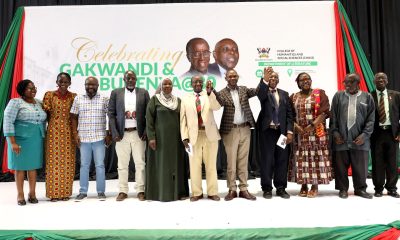
 Humanities & Social Sciences2 weeks ago
Humanities & Social Sciences2 weeks ago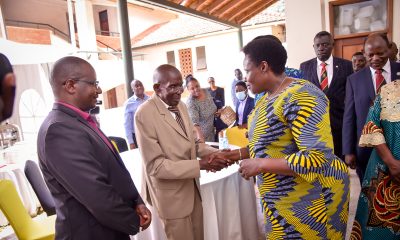
 General3 days ago
General3 days ago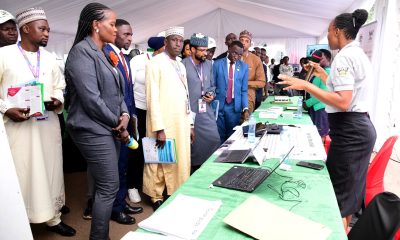
 Computing & IS2 days ago
Computing & IS2 days ago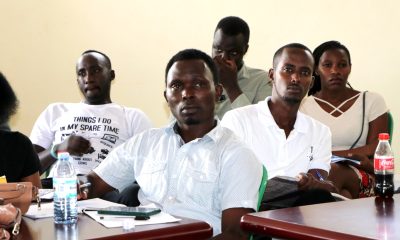
 Veterinary & Biosecurity1 week ago
Veterinary & Biosecurity1 week ago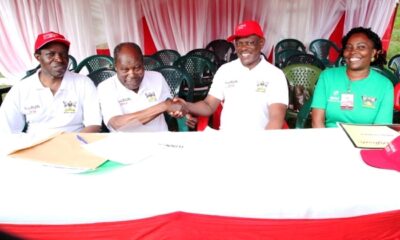
 General3 days ago
General3 days ago
